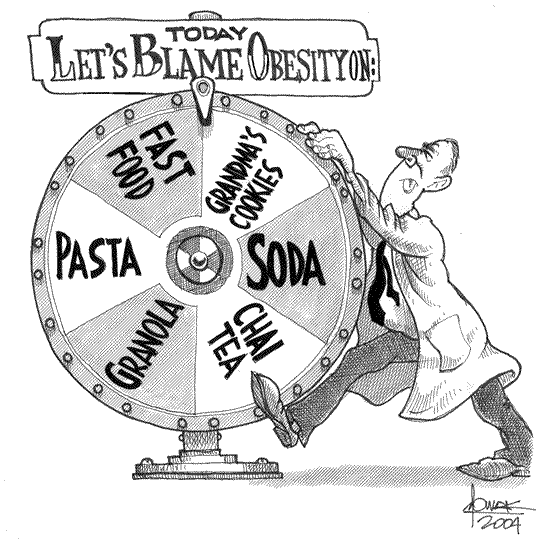The Seriously Serious Problems of Obesity, Part 1 of 5 – The Psychological Dimensions of Obesity
In this Part 1 of a 5 part series: The Psychological Dimensions of Obesity.
This is one part of a five-part series about the many chronic and debilitating health issues connected to obesity, where the focus is the on psychological dimensions of obesity. Please scroll to the bottom of this post for the list (and links) to the other posts in this series.
 I DOUBT if you’d be surprised to read today in the New York Times that the U.S. faces “a surging obesity rate”. This untenable dilemma is widely and often reported. Everyone hears it blaring from the T.V., or reads about it — or at least glances at the headlines.
I DOUBT if you’d be surprised to read today in the New York Times that the U.S. faces “a surging obesity rate”. This untenable dilemma is widely and often reported. Everyone hears it blaring from the T.V., or reads about it — or at least glances at the headlines.
If you aren’t obese, you may shake your head and utter in your mind, “tsk, tsk”. If you are obese, I imagine a whole panoply of responses are possible… these stories may boomerang off you, depress you, or get you to figure out what’s wrong and right it.
Yeah, if only!
If only we could learn that we have a problem, objectively select a solution, and then steadfastly apply it to the problem till it’s fixed.
Just doesn’t happen.
But why not?
Well, one doesn’t become obese overnight. It takes time, diligence and effort. Think of how many extra chews it must take.
Not funny! No, and my intention isn’t to be funny, or take a cheap shot. I’m leading up to something, and it is this:
Obesity doesn’t just happen, like getting a splinter, and it doesn’t just “unhappen”, like pulling out that splinter. No, adding enough fat to your bones and lean muscle tissue to become obese takes time, and a set of behaviors that are self-defeating.
So why does it happen?
Among the longest-known people in my life, three are, or have been, obese (one died from diabetes complications). I’ve had an upfront seat.
I’ve learned a few things about the psychological dimensions of obesity:
1. Obesity is often the result of a deep-seated personal issue that just happens to be manifested in weight gain in some people. Yours may manifest differently. (Mine do.)
2. That deep-seated personal issue is deep enough to be chronic; meaning, it’s been there awhile, and has been shaped by experiences — people, things, events.
3. Hearing about impending death due to obesity, being shunned by members of the opposite sex, getting shoe-horned into airplane seats — these indignities seldom root out the deep-seated, complex personal issues.
4. No diet, exhortations from loved ones, medical doctors, or religious figures will make a sustained differences. If you dig in and find out what’s up, what’s up is not just a physical issue. We’re multidimensional beings; meaning that our personae are comprised of the intertwining of spirit, body, mind and emotion. Your whole self needs to be addressed. This usually can not be done without help.
5. Lastly, just as the root cause is not the same for all, there are no pithy answers that fit everyone. That’s why each of us needs to re-read and understand number 4 above.
Now, I turn to four reasons that suggest that now might be a good time to start solving the problem. I’ll do this by immediately contradicting myself when I asserted above that the solution is not mental per se, because what I’m about to do is appeal to the intellect — that insufficient arbiter of change — to underscore the bad that can come from obesity.
These are the four under review that recent studies proclaim are caused by, or intensified by obesity:
- Cancer
- Diabetes (type 2)
- Brain Degeneration
- Sleep Apnea
So, let’s set the stage by returning to that New York Times article reference at the start of this post. It summarizes a new report that projects that 103 million American adults — 43% — will be obese in eight years, greater than the growth of any other health condition in history.
Chronic health conditions associated with obesity in eight years (2018) are projected to total $344 billion, given the current trend. If you’ve been following the debate about reforming health care, you have heard (correct) assertions that no change in policy can “bend the cost curve” (achieve declining rates of costs, not slower increases) without a concomitant change in behavior.
Our fast food nation, needs slow food.
Over each of the next four days, I’ll post some specifics about obesity’s effect on cancer, diabetes, brain degeneration and sleep apnea.
Continue Reading >
Want to read up on a new eating plan? Click on “Diet/Nutrition” under “Catagories” in the sidebar on the right hand side of your screen. There are several posts listed there.
These are the titles and links to each of my five-part series on obesity:
The Seriously Serious Problems of Obesity. Intro: Part 1 of 5
You’ve just read one, where the focus was on the behavioral aspects and physical ills associated with obesity
The Seriously Serious Problems of Obesity, Part 2 of 5
Focus: Cancer’s relationship to obesity
The Seriously Serious Problems of Obesity, Part 3 of 5
Focus: Diabetes’ (type 2) relationship to obesity
The Seriously Serious Problems of Obesity, Part 4 of 5
Focus: Brain Degeneration’s relationship to Obesity
The Seriously Serious Problems of Obesity, Part 5 of 5
Focus: Sleep Apnea’s relationship to obesity
Last Updated on May 31, 2014 by Joe Garma


